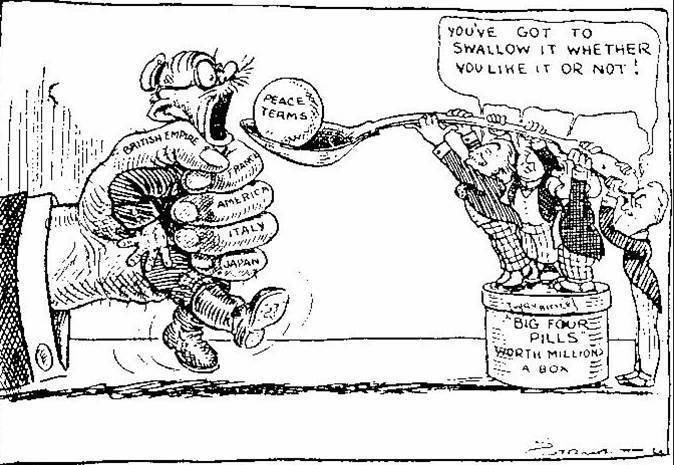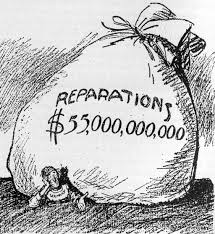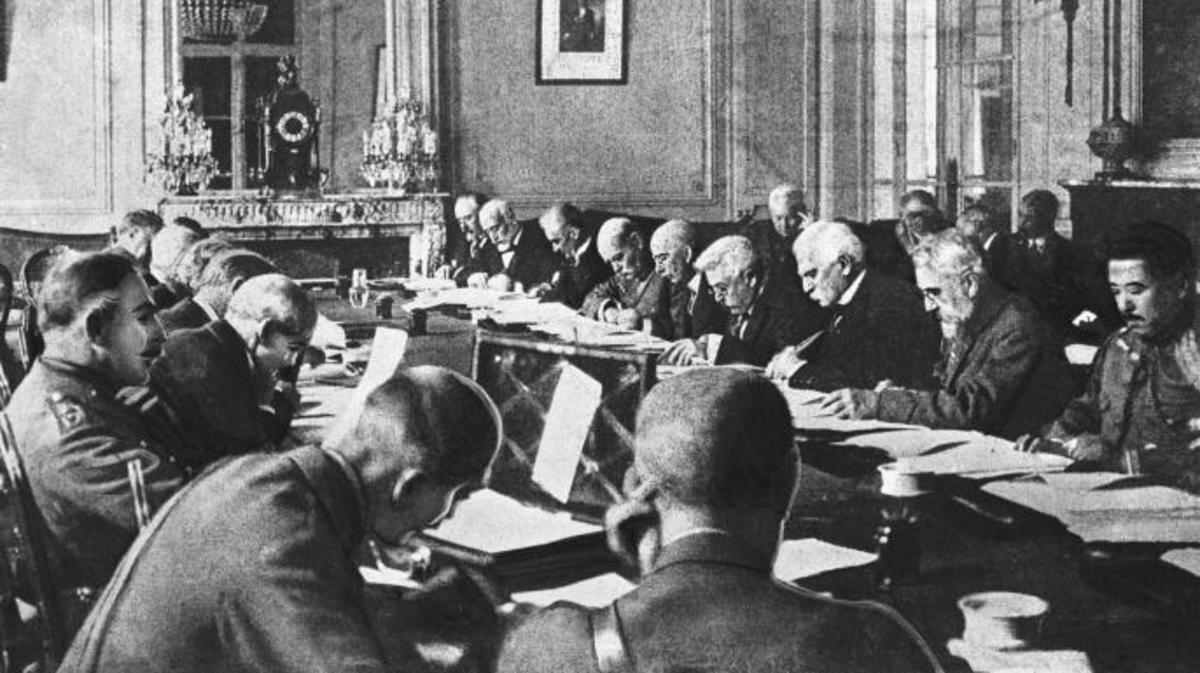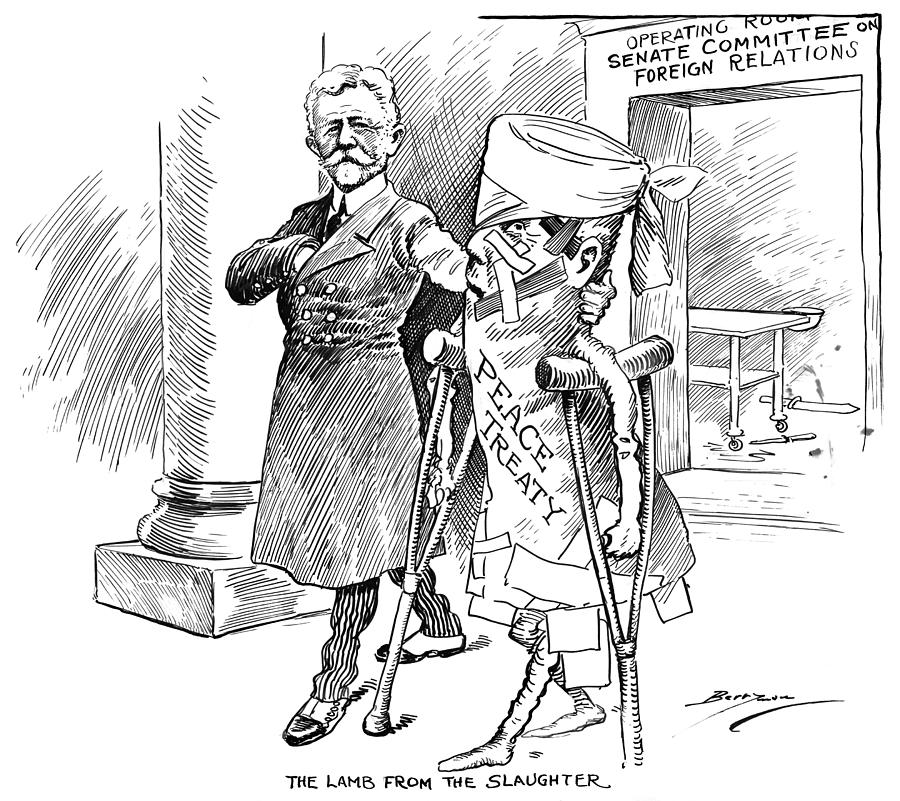Stab in the Back.
‘There Will Be Intense Bitterness, Hate, and Desperation’
Down to the Last Three Days. Are the Allies Bluffing?
Special to The Great War Project
(1 June) The Germans get their version of the peace treaty in May a century ago, and they are shocked.
Here are just a few of the terms. The borders of Germany are redrawn. It loses thirteen percent of its territory, ten percent of its population.
Germany alone is made to disarm.

Feeding Germany the treaty.
The reaction in Germany is shock. “After all,” historian Margaret Macmillan writes of the German response, “had Germany lost the war?”
“Since the armistice, the military and its sympathizers had been busy laying the foundations of the stab-in-the-back theory…
…that Germany had been defeated not on the battlefield but by treachery at home.”
“Why should Germany alone be made to disarm? Why should Germany be the only country to take responsibility for the Great War?”
“Most Germans still viewed the outbreak of hostilities in 1914 as a necessary defense against the threat from the barbaric Slavs to the east.”
Said the German chancellor, “The treaty is completely unacceptable.”

Germany alone is made to pay.
The Germans lay responsibility for this terrible circumstance on Woodrow Wilson personally. “What had happened to Wilson’s promises?” they ask.
“Well, I’ll give you some open diplomacy,” said the German defense minister to an American journalist. “You Americans go back home and bury yourself with your Wilson.”
“Where Wilson had been seen as Germany’s savior, he overnight became the wicked hypocrite.”
Writes one observer, when the Germans see the treaty’s terms in cold print, “there will be intense bitterness, hate, and desperation.”
Even Secretary of State Lansing levels sharp criticism of the treaty. “The terms of the peace appear immeasurably harsh and humiliating, while many of them are incapable of performance.”

At the peace table.
“This isn’t a treaty of peace.” Some in the American delegation resign in protest. Their letters of resignation,” writes historian Macmillan, “spoke of disillusionment, of how Wilson’s great principles and the idealism of the United States had been sacrificed to serve the interests of the greedy Europeans.”
Similar views bubbled up in the British delegation as well. “The British pardoned themselves for having created an ‘imperialistic peace.’” They blame the Italians and the French, Macmillan reports.
It turns out that the British PM Lloyd George is rethinking the whole treaty.
“He was well aware,” writes Macmillan, “that in the long run, it was not in Britain’s best interests to have a weak and possibly revolutionary Germany in the heart of Europe.”
The British delegation meets on June 1st a century ago. Many of the voices raised speak of “the menace” of the treaty in its present form. Many argue that the treaty must be rewritten.
“Lloyd George tells the delegation that he can’t sign the treaty in its present form.” Nor can he agree to attack Germany once again if the current deadline expires without agreement.

Is this really peace?
“Wilson and the French PM Clemenceau were horrified at the prospect of redoing the work that had been so painfully accomplished.” Nevertheless, Wilson is not prepared to budge.
On June 16th a century ago, after two weeks of further acrimonious negotiation, the Germans are informed that now they face a deadline of three days.
Are the Allies bluffing?
